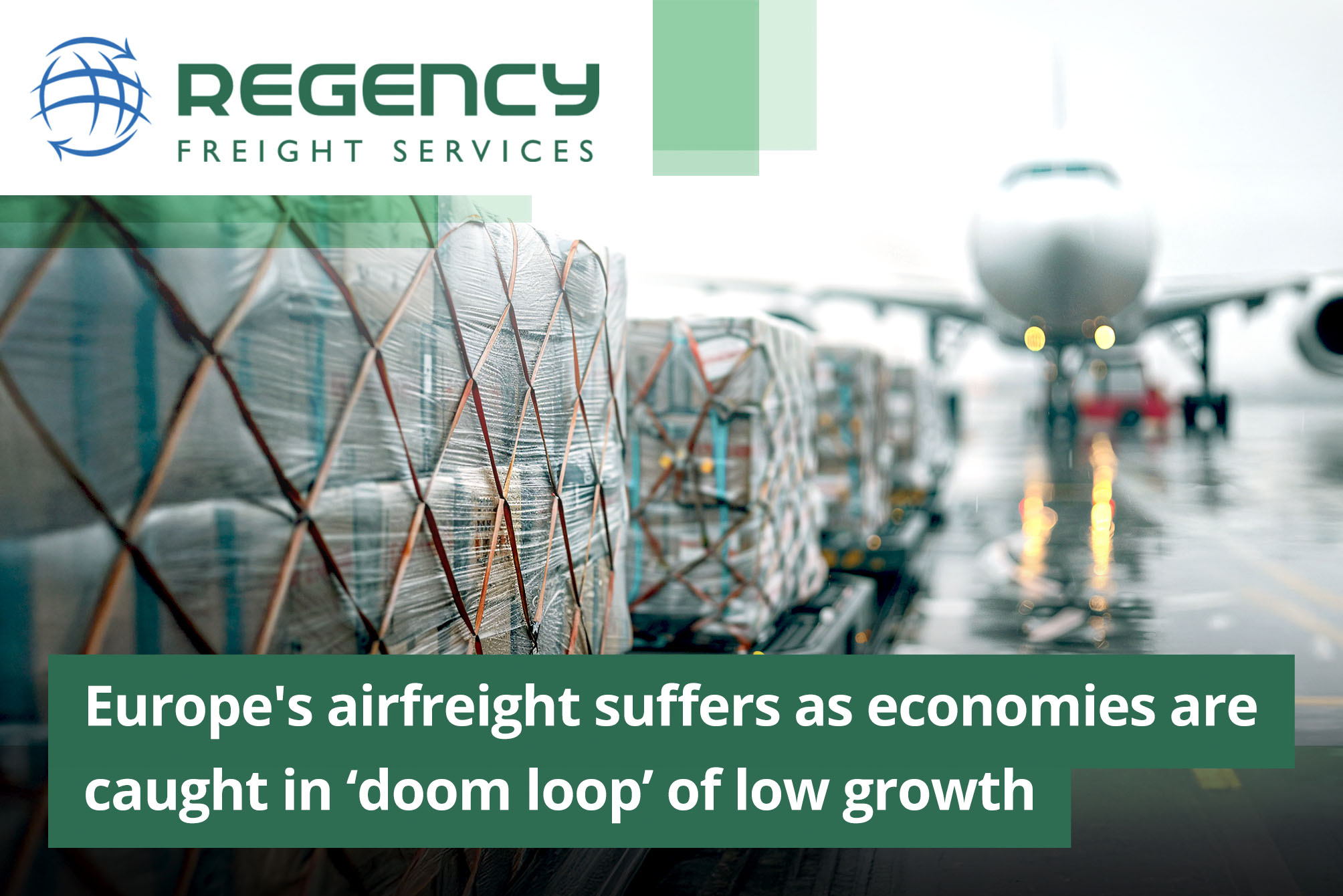Europe's airfreight suffers as economies are caught in ‘doom loop’ of low growth5 Comments23 November 2024
Expectations of a bumper airfreight peak season are beginning to dwindle as a successful spell of front-loading fills warehouses. In its summary of the October rates scene, the Baltic Airfreight Index noted an 8.1% increase in worldwide prices, and described the month as another “series of solid gain”, pointing to a particularly strong performance on major lanes out of Asia, to Europe and North America. “However, it was not as spectacular as some had been expecting, especially for a period when the market enters its traditional peak in the run-up to Thanksgiving and Christmas,” it said. “Some big forwarders now say there may be less of a peak spike than they expected back in the summer when a lot of capacity was being booked via block space agreements. K+N, for instance, says it now anticipates the peak to be ‘more muted’ than expected.” K+N CEO Stefan Paul said that as well as the front-loading, the situation had also been affected by an easing in sea freight and the postponement of US industrial action at US east coast ports. Even so, the figures do not look too sloppy, says the report, with rates overall up 10.9% for the 12 months to November, while for the four weeks to 4 November, outbound routes from Hong Kong saw rates climb 8.2%, leaving that lane 10.2% up year on year. Routes also seeing a bumper year have been outbound-Shanghai and outbound-Heathrow, up 22.4% and 17.4%, respectively, year on year. Nonetheless, European and North American markets have continued to struggle, with Chicago highlighted for having “bucked the rising global trend” with a month-on-month decline of 18.4%, leaving it down 15.1% year on year. Similarly, Frankfurt’s 10.9% month-on-month uptick left it down 3.2% on where it was in October 2023. “From a global macro perspective, airfreight data arguably reflects a market where European economies appear caught in a ‘doom loop’ of low-to-zero growth, high government debt-to-GDP levels and a loss of competitiveness in key sectors, such as German automobiles. “In the US, by contrast, the economy has continued to defy fears of a recession, maintaining a trend towards a ‘soft landing’, with lower interest rates helping to ease the pain.” WorldACD’s weekly rates index, covering 28 October to 3 November suggest, however, that Europe may be seeing signs of positive momentum, with a week-on-week increase of 3% over the seven days, to $2.34 per kg, outpacing the 1% uptick recorded from Asia-Pacific. Furthermore, the index also reported that over the two weeks to 3 November, rates from Europe had climbed 4% against the preceding two-week period. By Alexander Whiteman |
|
   |
